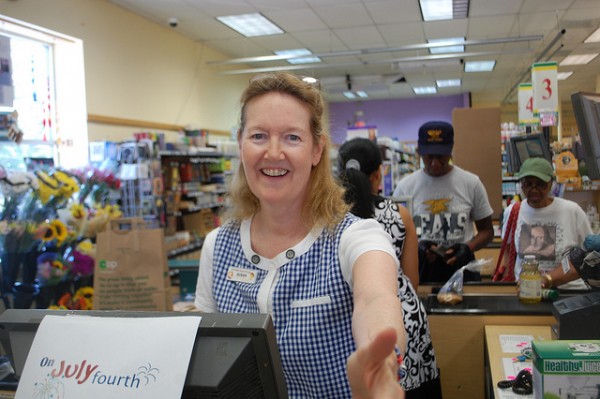
We expect co-ops to be places where employees and customers are free to be themselves, empowered by collective ownership and unencumbered by the corporate control of scheduling, dress code, and workplace policies. However, sociologist Elizabeth Hoffmann finds worker cooperatives are not always utopian work spaces. Instead, they rely heavily on a specific kind of emotional labor to achieve conformity and productivity among their employees.
Hoffmann studied emotional labor like verbalizing support for your coworkers and smiling while on the job in worker cooperatives in the U.K. and the U.S. across four industries: coal mining, chemical manufacturing, taxicab driving, and organic food distribution. Through interviewing co-op employees and observing their behavior on the job over a number of years, Hoffmann found that working at a co-op can actually demand more emotional labor than working for a conventional company. For example, while employees at co-ops are encouraged to display emotions not typically condoned in other work environments, like anger or love, they are also expected to truly identify with the cooperative’s ideology and ethos. And while workers in conventional workplaces are expected to maintain a façade of good relationships with customers and co-workers, worker cooperatives often expect their employees to truly feel the emotions they display at work. Not only should they smile and help, the workers at the co-ops that Hoffman studied expected that employees actually want to help their co-workers.
So while co-ops appear to promote individuality and choice among their workers, they often require a much deeper, possibly more insidious level of conformity and self-control than one might imagine. Perhaps it’s just one more case of how the most powerful forms of social control are those we exert—or are expected to exert—on ourselves.

Comments